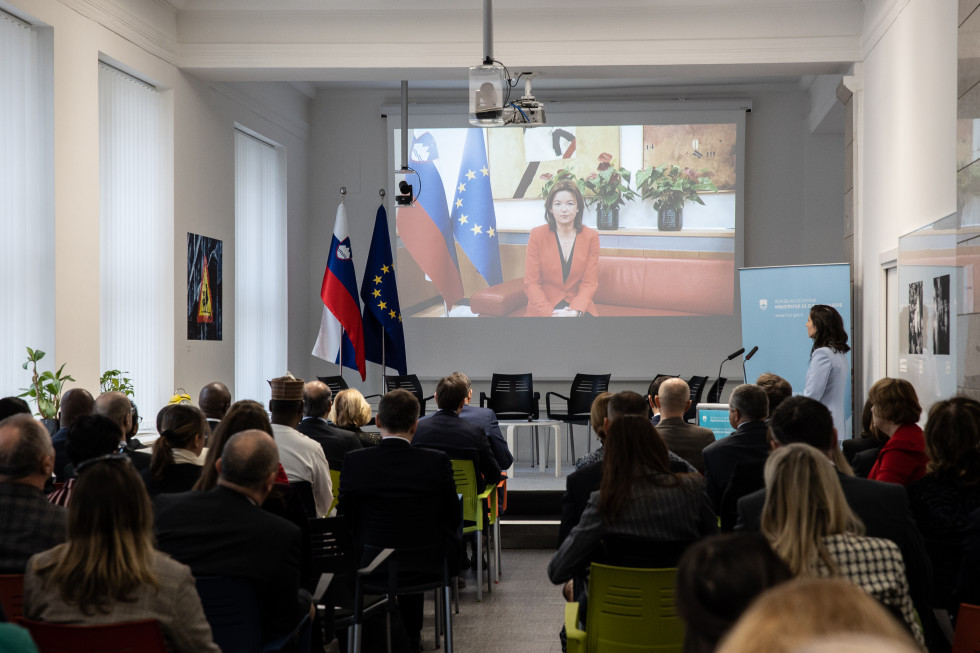International event on legal challenges and the protection of critical infrastructure and respect for international humanitarian law
- Ministry of Foreign Affairs

Minister of Foreign Affairs Tanja Fajon in her introductory video address | Author Katja Kodba, STA
In her opening video address, Minister of Foreign Affairs Tanja Fajon emphasised that "Slovenia shares the conviction that full respect for international law is a prerequisite for maintaining international peace, security and stability. In addition, the prosecution of perpetrators of serious violations of international humanitarian law is a prerequisite for building peace and reconciliation." She announced that if elected as a non-permanent member of the UN Security Council, Slovenia will pay special attention to respect for international law, international humanitarian law and human rights.
In the panel focusing on the importance of protecting critical civilian infrastructure during armed conflict and in relation to peacebuilding measures, former President of Slovenia and Chair of the Global High-Level Panel on Water and Peace, Dr Danilo Türk, highlighted the devastating impact of armed conflict on water supply and stressed the importance of protecting water resources.
Dr Dominika Švarc Pipan, Minister of Justice, who opened the panel on the environmental degradation during armed conflict, its assessment and impact on health and livelihoods, underscored: "Any war is a potential threat to the existence of humanity, as it accelerates climate change and has harmful consequences for biodiversity and ecosystems. Unfortunately, all this is happening despite the fact that international humanitarian law is supposed to protect the natural environment from such devastating impacts".
"Global humanitarian needs are at record levels and are projected to grow further", said European Commissioner for Crisis Management Janez Lenarčič, keynote speaker at a panel on delivering fast and effective aid to those in need. Commissioner Lenarčič also pointed out that armed conflicts remain a major factor in humanitarian crises; yet, the impact of climate change is becoming increasingly dramatic and more frequent.
Dr Marko Rakovec, Acting Director-General of the Directorate for International Law and the Protection of Interests of the Ministry of Foreign Affairs, said that "Slovenia is an environmentally conscious country and pays special attention to the protection of the natural environment in armed conflicts and to raising awareness of respect for international law". The protection of the natural environment in armed conflicts was also Slovenia's priority during its EU Council Presidency.
In his closing remarks, State Secretary at the Ministry of Foreign Affairs Marko Štucin called on states and humanitarian organisations to consider new strategies and policies that are required to respond effectively to today's complex, recurrent and protracted humanitarian crises.
The hybrid event was attended by over 100 participants, including Permanent Representatives to the United Nations in New York from South Africa, Costa Rica, St Lucia, Sierra Leone, Nigeria, the Dominican Republic, Kenya and Palestine, as well as a number of representatives of international organisations, National Committees for International Humanitarian Law, academia, NGOs, diplomats and international law experts.
